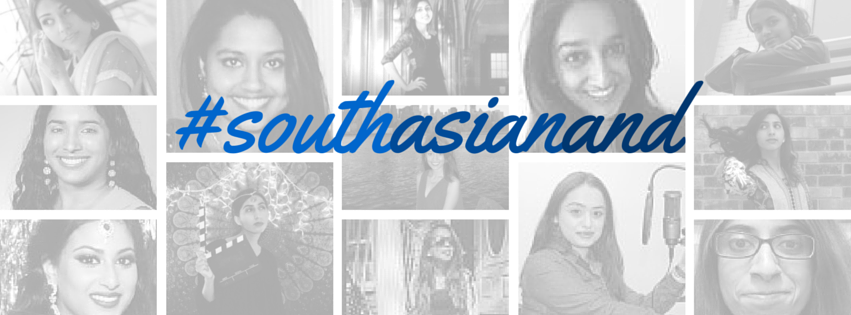
by Sonali Kudva
The following post is part of a campaign in partnership with the Washington Leadership Program (WLP), called #SouthAsianAnd. Together, we want to showcase the stories of South Asians in America beyond our race and the stereotypes attached to it. Share your stories by Tweeting the hashtag #SouthAsianAnd and tag @BrownGirlMag to tell us how you are South Asian and more.
I’m a Hindu-Brahmin South Indian woman who lives in the United States. I have no hyphenated identity, but what I carry every day are various labels.
Long ago when I was a child living with my parents in the Middle East, my parents and I bumped into a fellow Indian at a local grocery store. As is with most Indians, he asked where we were from. And since I was not shy, I informed him that we were Indians. He repeated the question, addressing my parents, who finally responded with our state of origin in India. It was a long time before I even understood the implications of his question and my response.
It was when I moved back to India that I realized that being Hindu meant we went to the temple to pray. I went to a private school run by Indian-Christians where I learned they eat different foods and go to church instead if temple. I was excused from church, but not from learning hymns. I enjoyed music, so this wasn’t a big burden.
Then I went to a school run by a Muslim trust and learned that Muslims prayed five times a day, fasted during Ramadan and ate a whole lot more meat than I ever did at home. I enjoyed eating with my friends, so this wasn’t a problem either.
Not once did I ponder the differences between those I met and myself. They were simply a part of my life’s fabric growing up in India.
Slowly, I learned that being Brahmin meant I was born to a certain inherited social privilege. I didn’t notice this privilege, nor did I feel I actually received any special treatment. My parents were self-made, and I got through school and college by my own merit. But I learned that I bore the burden of my perceived social privilege, which had meant the oppression of others in another time.
I learned what it means to live in a country with a colonized past, a secular present and what appears to be an increasingly divisive future.
I was one of many Indians living in India.
It wasn’t until I moved to the U.S. in the wake of 9/11 that I learned what it means to be South Asian in the American context.
Being South Asian meant I was constantly looked down upon for my “accent,” being questioned as to how it is that I speak English fluently. Initially, I was incredulous. Today, I respond by saying “I do not have an accent, and that I’m Indian, educated, and the product of a country with a history of British colonization.”
But for the most part, I think I was never so conscious of being South Asian as when I began dating in this country. This is when I learned I was “exotic.” It’s also when I became familiar with the many stereotypes associated with fresh-off-the-boat South Asians. I didn’t really fit into any of them.
But I didn’t really fit into any of them.
I don’t work in information technology, nor am I a doctor.
I speak English fluently (teach it in fact), eat and wear what I like.
I never had an arranged marriage.
But I am brown-skinned. what does that mean?
So, what does that mean?
It means people still perceive me in a certain way.
But I am more than my skin color. Wait am I?
Wait, am I?
Yes. Being South Asian, I have come to realize, means that I am an amalgamation of many things. Of my cultural heritage, of my faith (whatever it may be) and of what I wear, eat and look like.
Sometimes these labels of my heritage, of the stereotypes that are held by others of my skin color, and of my “accent” make me acutely uncomfortable. Other times, I am grateful for what they have taught me: tolerance, dignity, empathy, a big appreciation for color, Bollywood music, and dance.
For me, being South Asian means I have had the best of the east and the west.
Other can label me what they want, but in the end, I’m just me. I am #SouthAsianAnd.
 Sonali Kudva is a Ph.D. candidate at the College of Communication and Information at Kent State University, Ohio, with research interests in Bollywood, Human-Information Interaction and Popular Culture. She inherited the travel bug from her parents and has traveled widely, and hopes to get the opportunity to travel to more interesting places someday. In another life, she was a Pulitzer Center for Crisis Reporting Fellow, has worked as a full-time journalist-editor and freelancer at magazines, newspapers and online. Sonali calls India her home, even though she spends more time away from home than in it. She likes to collect academic degrees, and in her spare time, she likes to vegetate with an interesting novel, talk to her family or argue with her friends on politics, international affairs and any other topic that may come up.
Sonali Kudva is a Ph.D. candidate at the College of Communication and Information at Kent State University, Ohio, with research interests in Bollywood, Human-Information Interaction and Popular Culture. She inherited the travel bug from her parents and has traveled widely, and hopes to get the opportunity to travel to more interesting places someday. In another life, she was a Pulitzer Center for Crisis Reporting Fellow, has worked as a full-time journalist-editor and freelancer at magazines, newspapers and online. Sonali calls India her home, even though she spends more time away from home than in it. She likes to collect academic degrees, and in her spare time, she likes to vegetate with an interesting novel, talk to her family or argue with her friends on politics, international affairs and any other topic that may come up.




